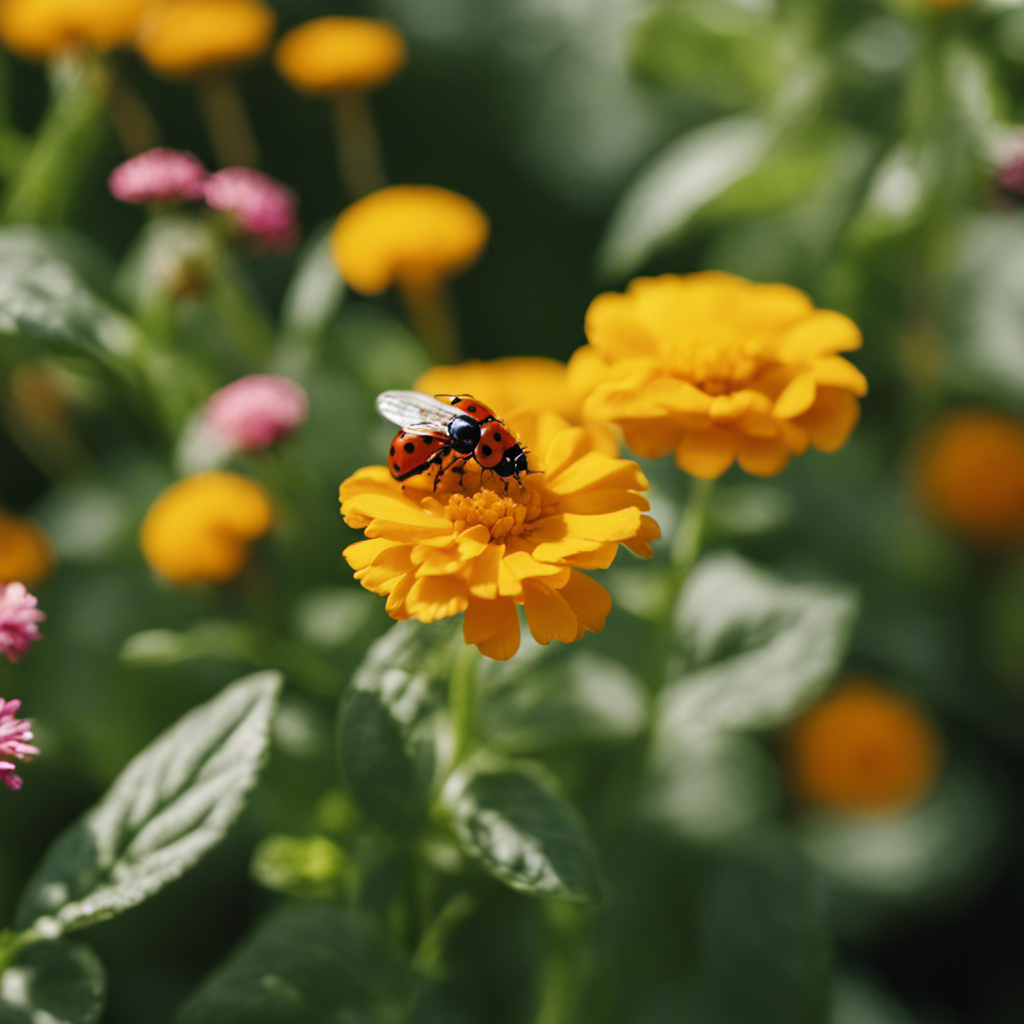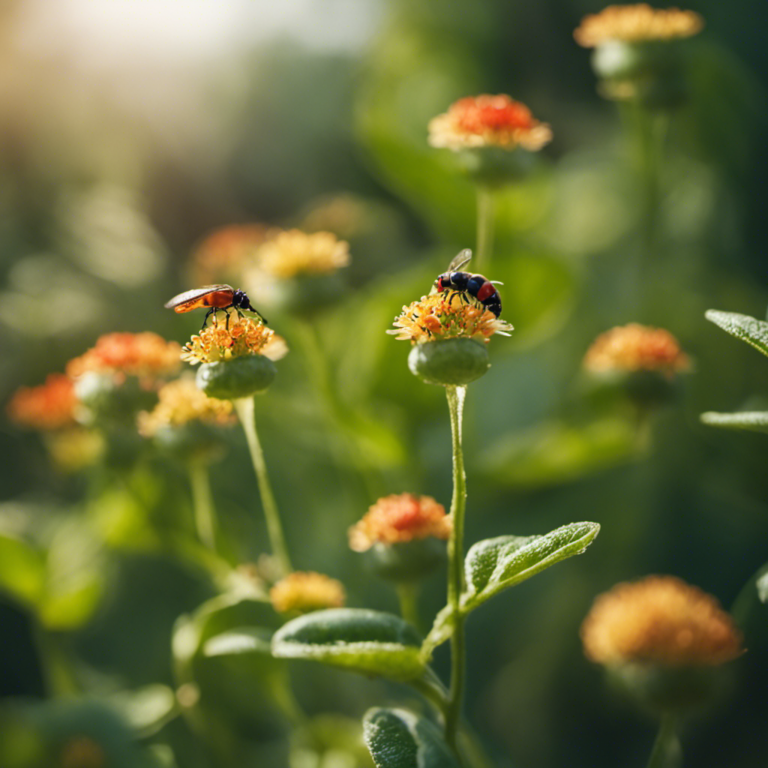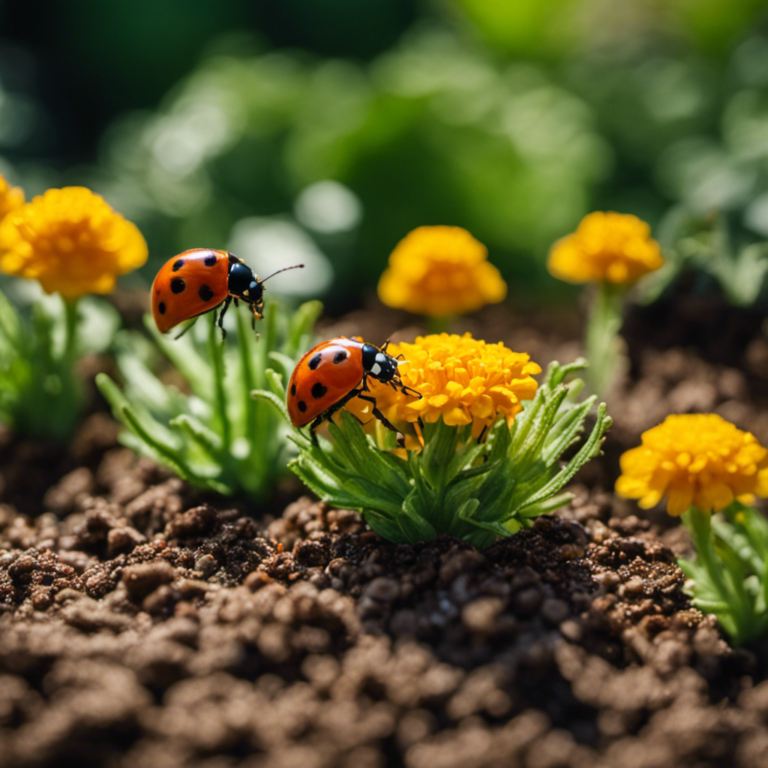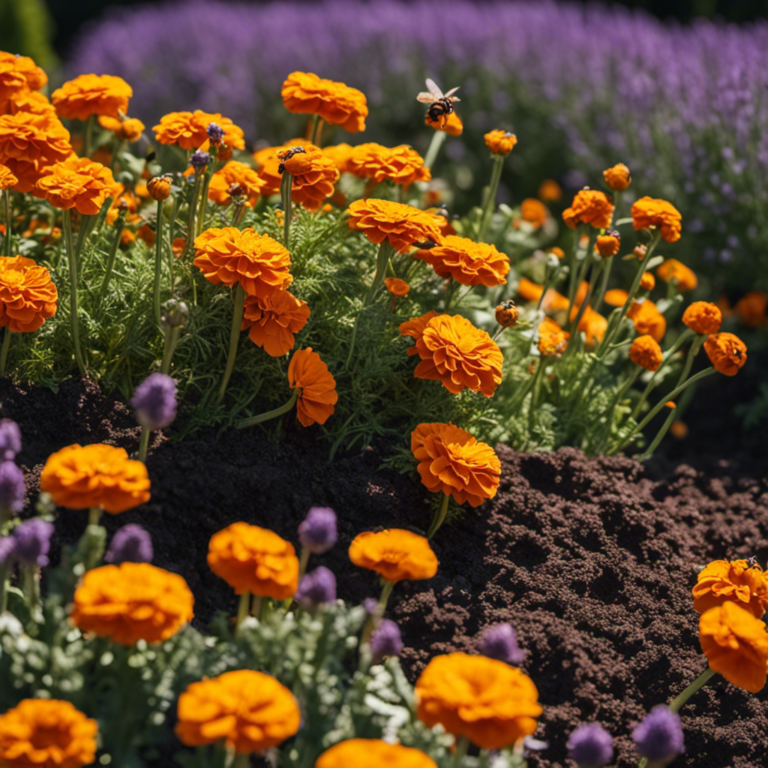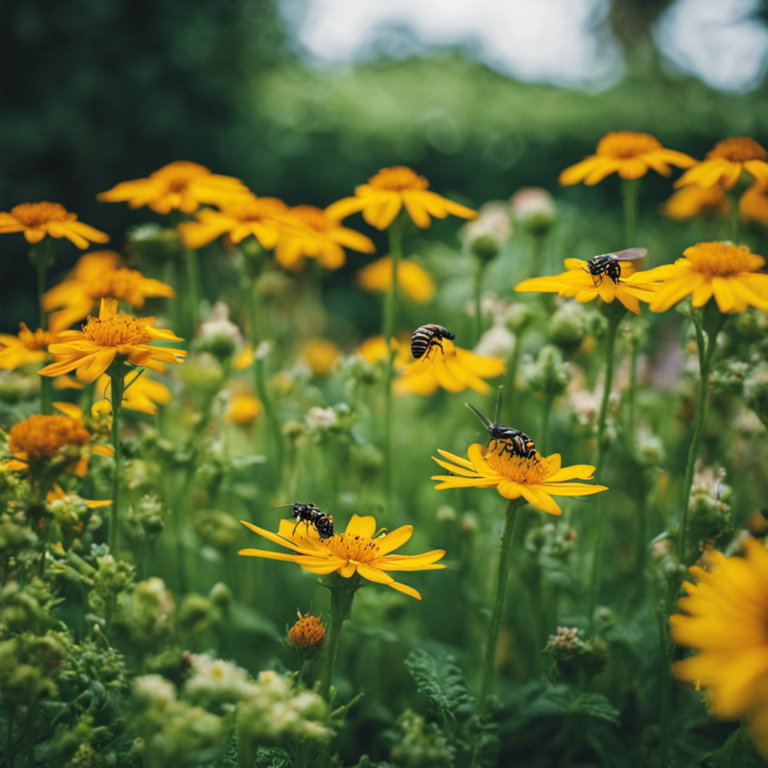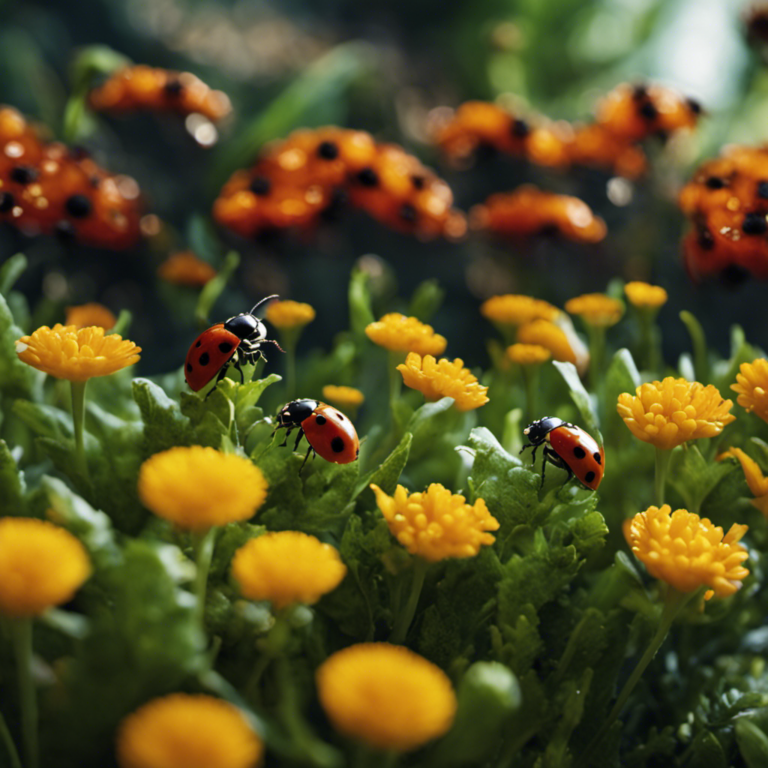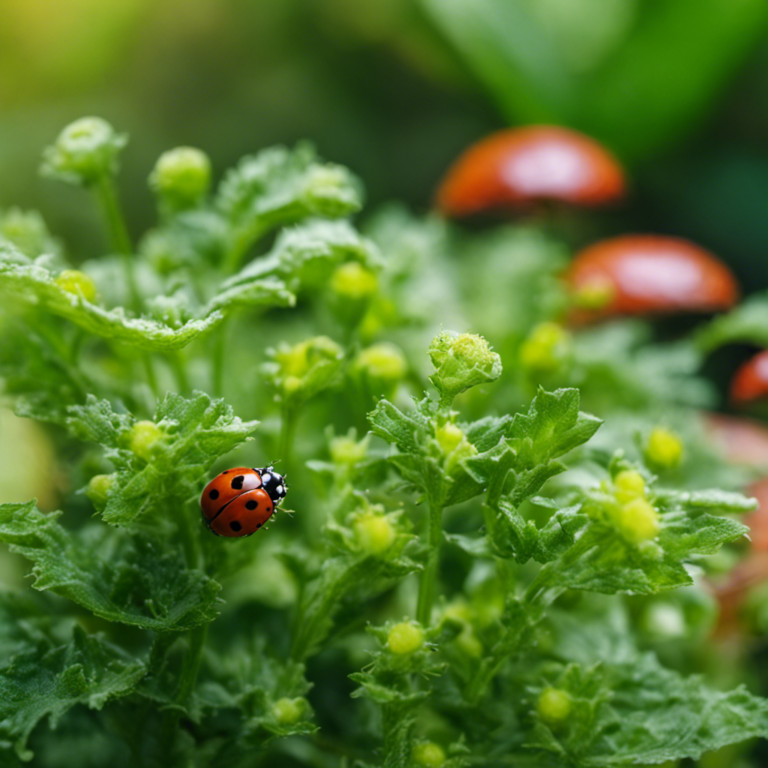Looking to keep unwanted pests away from your herb garden? You’re not alone – did you know that over 80% of herb gardeners have trouble with pests? But don’t worry, we have the solution for you.
In this updated guide, we will share natural pest control methods that are safe for your herbs and the environment. Say goodbye to harsh chemicals and hello to a thriving, pest-free garden.
With homemade repellents, beneficial insects, and companion planting, you can protect your precious herbs and enjoy fresh, flavorful flavors all season long. Get ready to take control and have a bountiful herb garden without the hassle of pests.
Key Takeaways
In the realm of pest control, using natural methods is like nurturing blooming flowers. By incorporating organic techniques, homemade repellents, and beneficial insects, herb gardens can thrive without the interference of bothersome pests.
Companion planting plays a crucial role in creating a harmonious environment that keeps unwanted intruders at bay. And when necessary, organic sprays and solutions provide a gentle touch, ensuring the health and vitality of our beloved herbs.
By embracing the beauty of nature’s pest control, your herb garden can flourish.
Essential Organic Pest Control Methods
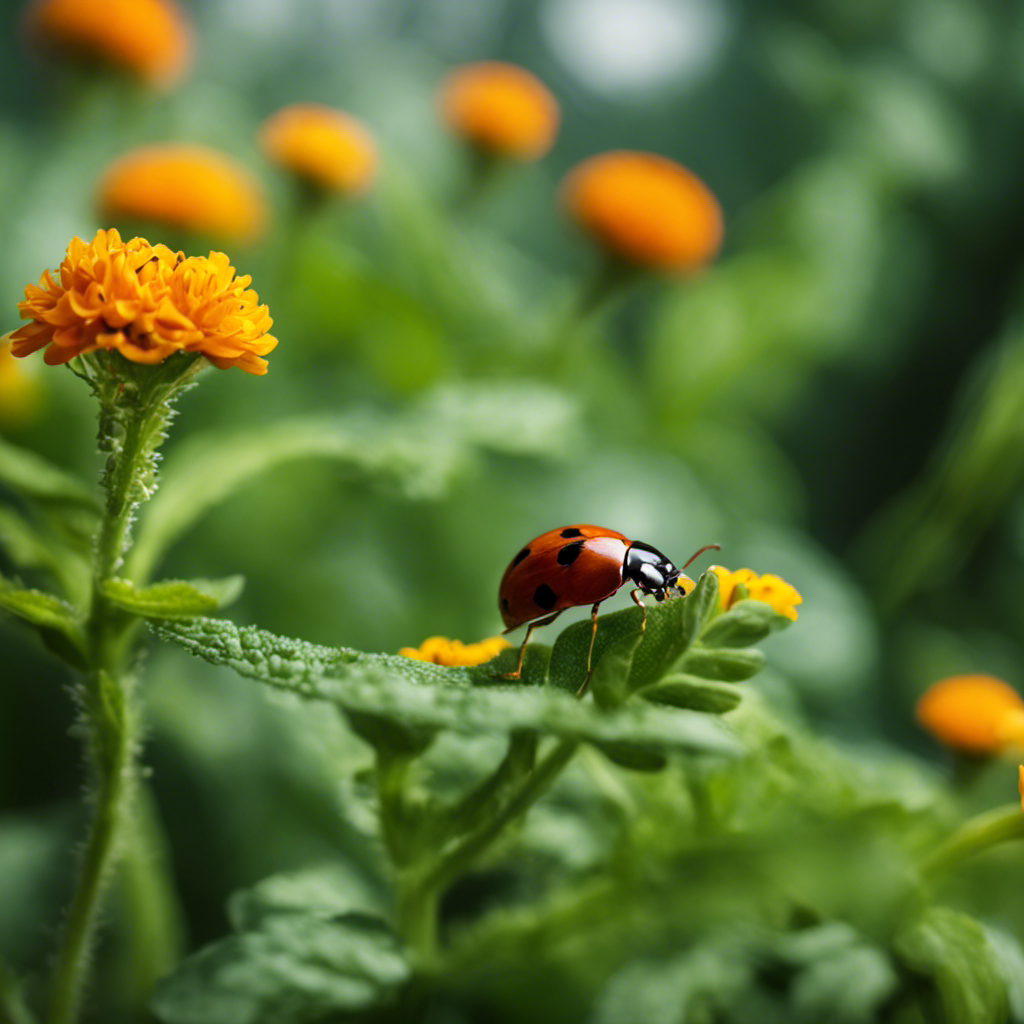
Effective Organic Methods to Control Pests in Your Herb Garden
To control pests in your herb garden, it’s important to use effective organic methods. Organic pest control products are a safe and environmentally-friendly way to keep pests away. These products are made from natural ingredients and don’t contain any harmful chemicals.
Look for organic insecticides and repellents that target the specific pests you’re dealing with. Additionally, consider planting herb varieties that are resistant to pests. These herbs have natural defenses that repel pests, reducing the need for chemical intervention.
Some examples of pest-resistant herbs include mint, rosemary, and lavender.
Homemade Pest Repellents for Herbs
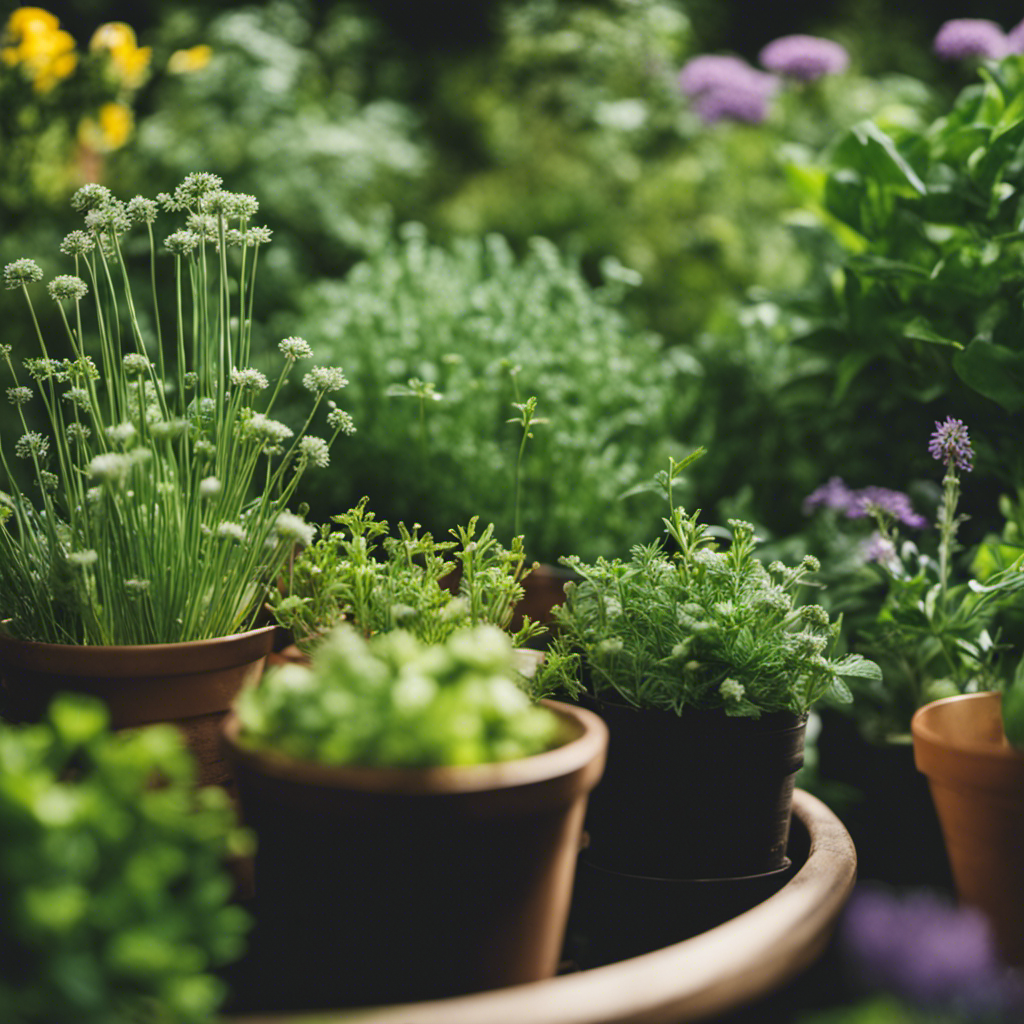
Protect your herb garden from unwanted visitors by making your own homemade pest repellents. Not only is DIY pest control cost-effective, but it also gives you complete control over the ingredients used. Here are three effective homemade pest deterrents that will help keep your herbs pest-free:
-
Garlic and Chili Spray: Create a mixture by crushing garlic cloves and chili peppers and mixing them with water. Let the mixture sit for a day, then strain it. Transfer the liquid into a spray bottle and apply it to your herb plants. The strong aroma of garlic and chili will repel pests such as aphids and caterpillars.
-
Neem Oil Spray: Neem oil is a natural insecticide that’s safe for both plants and humans. Mix neem oil with water and add a few drops of liquid soap. Spray this mixture onto your herbs to deter pests like mites and whiteflies.
-
Herb Infused Water: Boil a combination of herbs like rosemary, basil, and mint in water. Allow the mixture to cool, then strain the liquid. Use this herbal infusion to water your herbs regularly. The strong scent of these herbs will keep pests away.
Beneficial Insects for Natural Pest Control
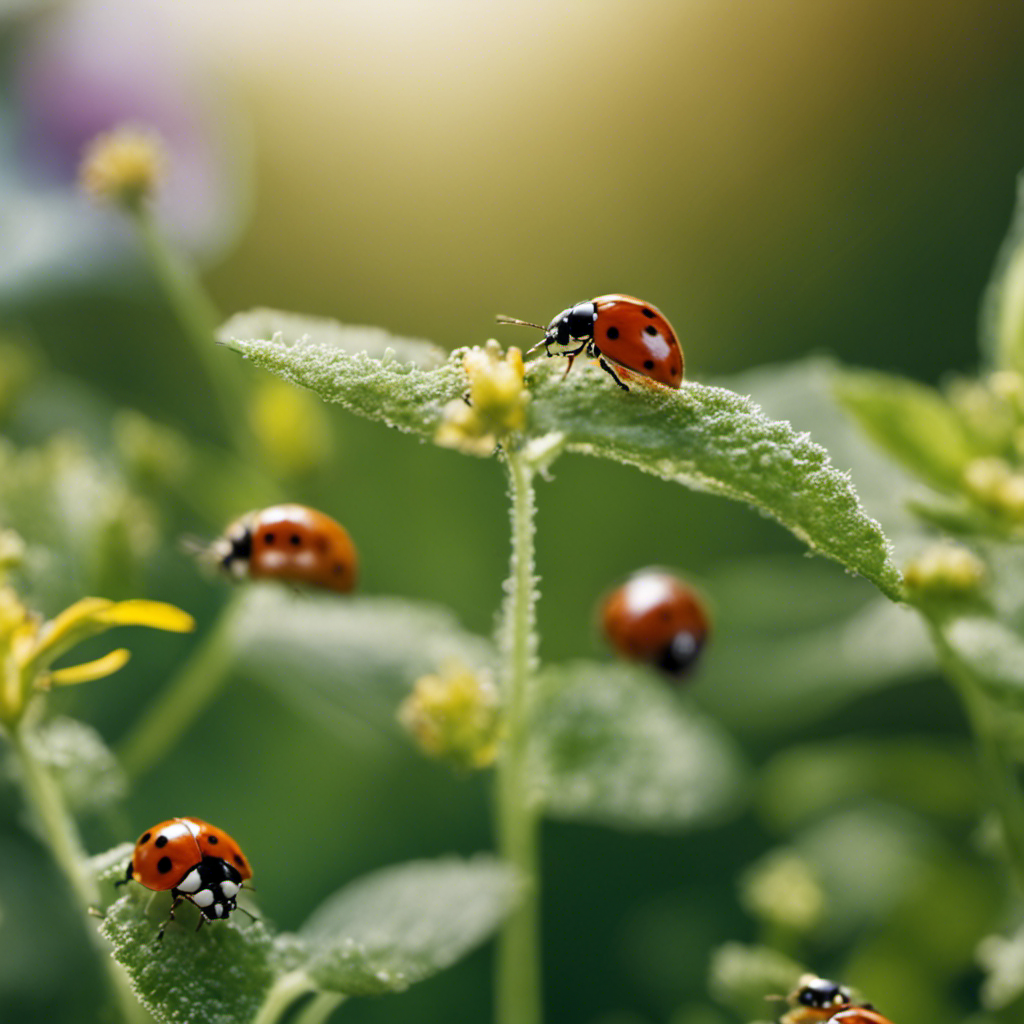
Using beneficial insects is a natural and effective way to control pests in your herb garden. These small creatures not only help keep harmful pests like aphids, mealybugs, whiteflies, mites, thrips, slugs, and snails at bay, but they also attract pollinators to your garden. By creating a welcoming environment for these beneficial insects, you can establish a natural balance that reduces the need for chemical pesticides.
Attracting these helpful insects can be achieved by providing them with a variety of flowering plants such as daisies, marigolds, and yarrow. It’s also important to create a diverse habitat with suitable shelter and water sources to encourage these beneficial insects to stay in your garden and protect your herbs.
Using natural pest control methods not only helps safeguard your herb garden but also promotes a healthier and more sustainable environment. As gardeners, it’s our responsibility to work in harmony with nature and make choices that benefit both our plants and the ecosystem as a whole.
Companion Planting for Pest Prevention
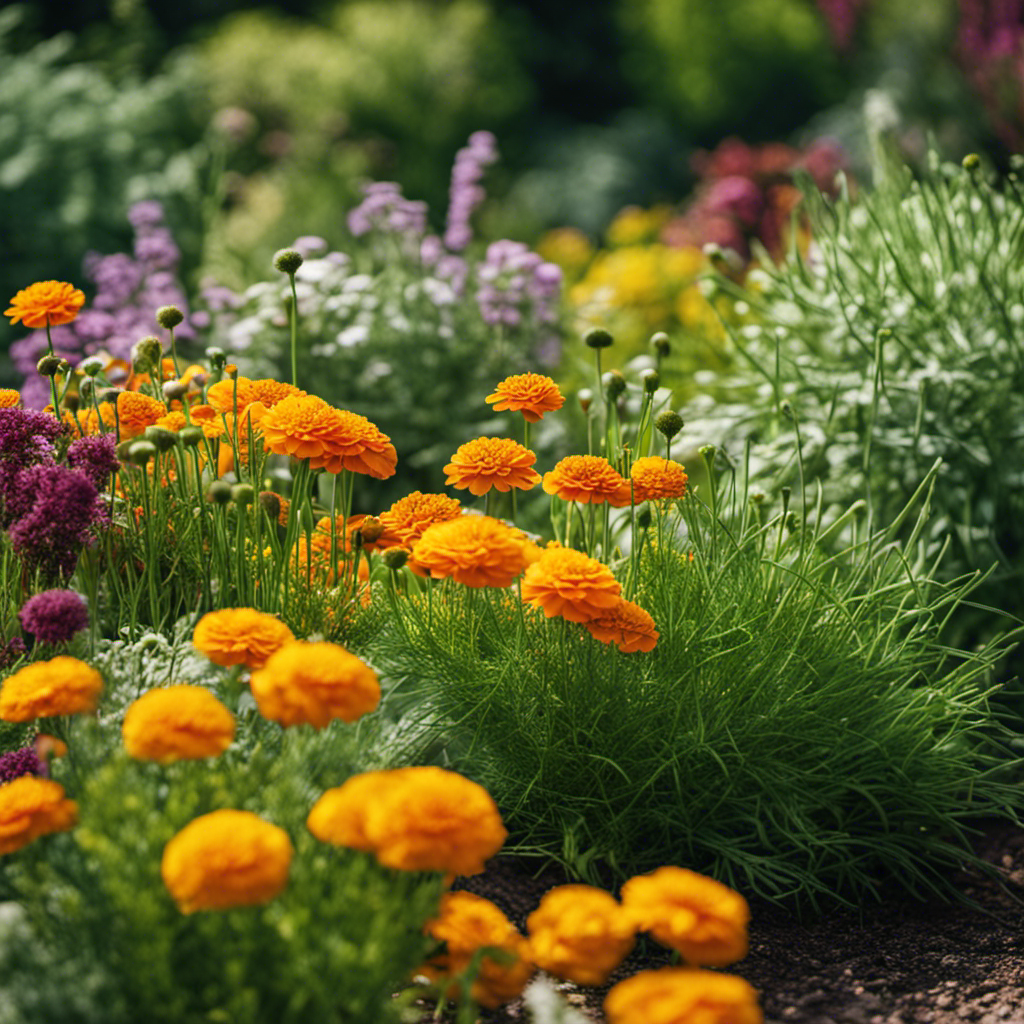
Enhance pest prevention in your herb garden with strategic companion planting. Companion planting involves growing certain plants together to improve their growth and deter pests. By selecting the right companion plants, you can establish a natural pest control system that benefits your herb garden in various ways.
Here are three benefits of companion planting and some successful companion plant combinations to consider:
-
Pest deterrence: Some plants naturally repel pests due to their compounds. For example, planting marigolds alongside your herbs can deter aphids and other insects.
-
Attracting beneficial insects: Certain plants attract beneficial insects that prey on garden pests. Planting dill or coriander, for instance, can attract ladybugs and lacewings that feed on aphids and caterpillars.
-
Improving soil health: Companion planting can also enhance soil health by fixing nitrogen or suppressing weeds. Planting legumes like peas or beans near your herbs can enrich the soil with nitrogen.
Organic Sprays and Solutions for Herb Gardens
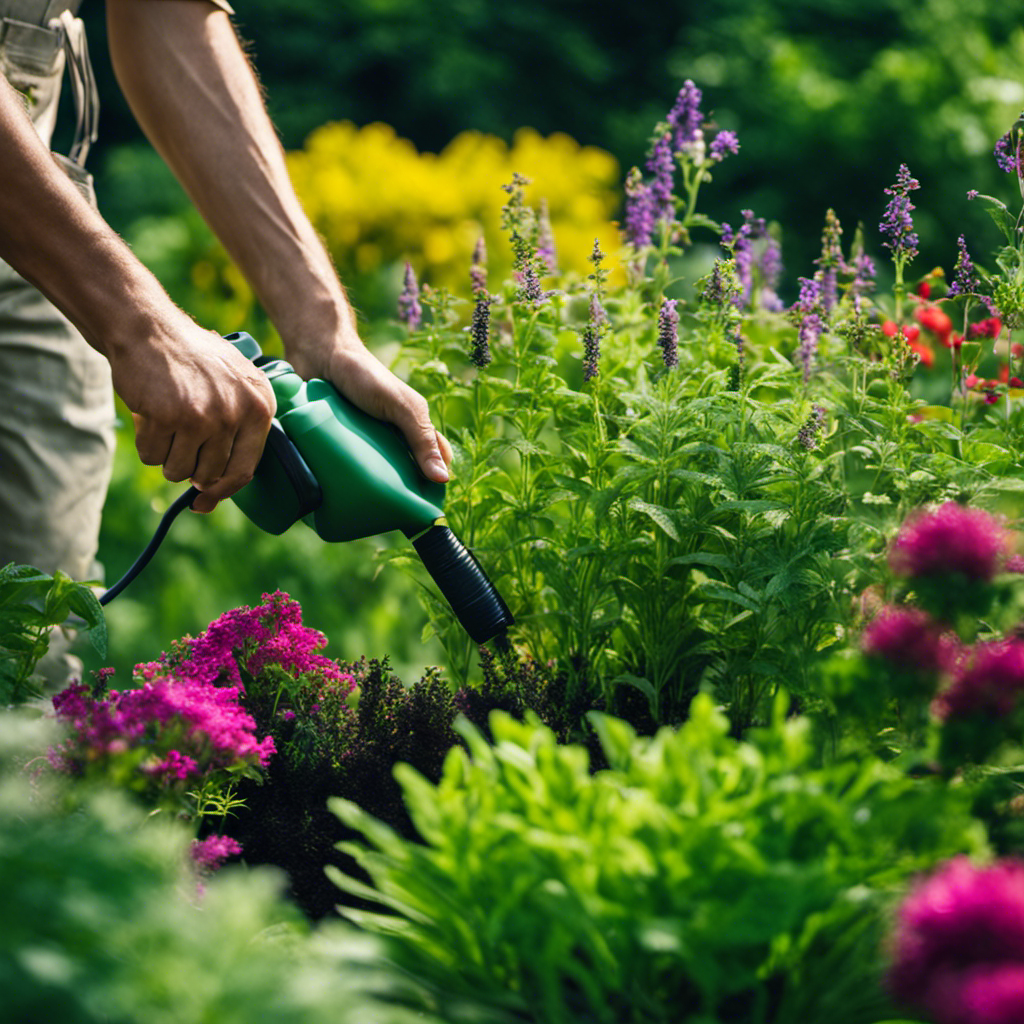
To effectively control pests in your herb garden, it’s recommended to regularly apply organic sprays and solutions. These natural remedies aren’t only safe for your plants but also for the environment.
One popular organic solution is a garlic spray. You can make this DIY remedy by crushing a few garlic cloves and mixing them with water. Let the mixture sit overnight, then strain it into a spray bottle.
Another effective spray is a neem oil solution. Neem oil has insecticidal properties that can help repel pests like aphids and spider mites. Mix the neem oil with water according to the instructions on the bottle and spray it onto your herb plants.
It’s important to test any spray or solution on a small portion of your plants before applying it to the entire garden to ensure it doesn’t harm them.
Conclusion
In the world of pest control, natural methods are like blooming flowers. By utilizing organic techniques, homemade repellents, and beneficial insects, herb gardens can thrive without the interference of bothersome pests.
Companion planting plays a vital role in creating a harmonious environment that keeps unwanted intruders away. And when necessary, organic sprays and solutions offer a gentle touch, ensuring the health and vitality of our beloved herbs.
Embracing the beauty of nature’s pest control allows your herb garden to flourish.
